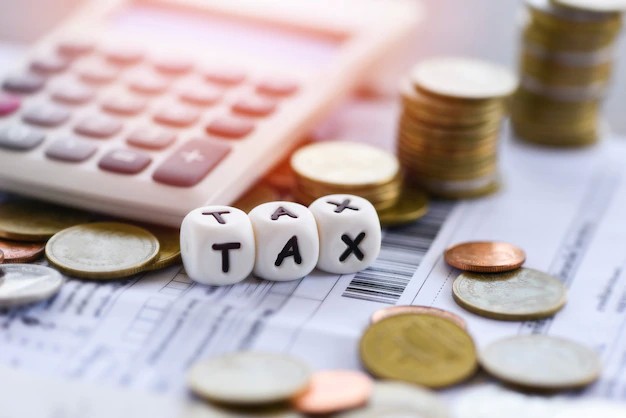
Dubai is attracting a large number of expats. Apart from the high standard of living, the fact that Dubai is a tax-free country is the key motivator. Dubai does not tax income. In addition, a vast majority of products and services are tax-free. As a result, many people believe that Dubai has no direct or indirect taxes. It is, after all, a myth. If Dubai provides expensive incentives to Emirati citizens, these benefits must be paid by some form of revenue.
In this post, we'll look at the different kinds of hidden taxes in Dubai.
UAE's income tax laws
Dubai is a tax haven since employees and workers are not subject to income taxes. The UAE Federal Government has said that income from salary, benefits, investment income, dividends, residential property income, and capital gains will not be subject to income tax.
Furthermore, the new tax rules (and subsequent revisions) have provided additional tax relief and exemptions to startups and small businesses. As a result, you won't have to worry about the Dubai income tax rate because you won't be charged any during your time working in the UAE. However, if you are taxable in your home country and produce significant earnings in Dubai, you may be subject to taxation. These tax breaks also apply to freelancers.
As a result, all they need to do is obtain the proper freelancer licence and begin conducting business without worrying about the taxes.
VAT
One of the most significant developments in the UAE's taxation system was the implementation of VAT in Dubai in 2018. Dubai's 5% VAT rate is one of the lowest in the world.
Nevertheless, certain goods are exempt from VAT. Some personal protective equipment used in the COVID-19 pandemic, like medical and textile masks, single-use gloves, chemical disinfectants, and antiseptics, were exempted by the UAE in 2020. Other items and services subject to a 0% VAT rate include:
- Exports of goods and services outside the GCC.
- Investment-grade precious metals
- Newly constructed residential properties
- Some education and healthcare services.
Furthermore, any VAT-registered enterprises can request refunds from the relevant tax authorities by submitting a request along with the necessary paperwork.
Tourist purchases are subject to VAT as well. However, they can ask for a VAT refund while in the Emirates. Companies operating in free-trade zones, the Dubai mainland, and offshore establishments are all subject to this tax. If you trade products and services outside the GCC or provide particular educational and healthcare services in the UAE, you will not be subject to VAT.
Excise tax
The excise tax was implemented in the UAE on October 1, 2017. Excise tax is an indirect tax applied on specified commodities that are damaging to human health or the environment. Excise tax is intended to reduce the consumption of these goods while simultaneously producing cash for the government to spend on public services. "Excise goods" are what these items are called. The following definitions apply for deciding whether or not a product is an excise good:
Any aerated beverage except unflavored aerated water counts as a carbonated drink. Any concentrations, powders, gels, or extracts destined for use in an aerated beverage are also considered carbonated drinks.
Any beverage that is promoted or sold as an energy drink and contains stimulant chemicals that give mental and physical stimulation is considered an energy drink. Caffeine, taurine, and ginseng are examples of this.
All items specified in Schedule 24 of the GCC Common Customs Tariff will be taxed at 100% on tobacco and tobacco products.
Corporate Taxes in Dubai
The profits made by a firm throughout the tax year are subject to corporate tax. Apart from the UAE tax framework, Dubai has its own corporate tax regulations that apply to companies doing business in the Emirate. These taxes, however, only apply to gas and petroleum enterprises, as well as foreign bank branches that operate in Dubai. The income of Dubai-based gas and oil companies will be taxed at a rate of 55%. The tax rate on taxable income for global bank branches operating in Dubai is estimated to be 20%. Dividends, interest, and royalty payments sent overseas are not subject to withholding taxes.
Taxes in Dubai Free Zones
The Dubai Free Zones offer a variety of tax incentives to international businesses wishing to do business in a low-tax environment.
Many Free Zone authorities provide firm income tax exemptions for up to 50 years. Free zone profits can be freely transferred to other countries. There are no withholding taxes or capital gains taxes in the free zones of Dubai.
Other taxes in Dubai
The following indirect taxes are levied by the Dubai government and must be considered before relocating to the Emirates:
- Hotels, entertainment venues, and the rental of commercial spaces (offices and warehouses) in Dubai are subject to a 10% municipal tax.
- The rental of residential property in Dubai is subject to a 5% municipal tax.
- The Dubai Electricity and Water Authority levies certain charges on utility bills.
- Imports of alcoholic beverages are subject to a 50% tax.
- A 30% levy on the purchase of alcoholic beverages
Many people do not need to hire an accountant because the UAE has no income tax and no income tax form to fill out. Larger companies, on the other hand, should seek independent financial guidance on their tax obligations.







 Know More
Know More